Ökonometrische Methoden für wirtschaftliche Prognosen und Simulationen
Der Forschungsschwerpunkt der Forschungsgruppe liegt in der Entwicklung ökonometrischer Methoden für Kurzfristprognosen (Reduzierte-Form-Modelle), für Regionalisierung und für Langfristprojektionen sowie für strukturelle Prognose- und Simulationsmodelle (DSGE-Modelle). Ferner erstellt sie ökonometrische Hintergrundanalysen für die Prognosetätigkeit der Forschungsgruppe Makroökonomische Analysen und Prognosen. Im Rahmen von Drittmittelprojekten wurden verschiedene makroökonomische Modelle, bspw. für die Volkswagen Financial Services AG oder im Rahmen von GIZ-Projekten für die Wirtschaftsministerien in Kirgistan und Tadschikistan sowie das Institut für makroökonomische Prognosen und Forschung (IFMR) in Usbekistan entwickelt.
IWH-Datenprojekt: IWH Real-time Database
Forschungscluster
Wirtschaftliche Dynamik und StabilitätIhr Kontakt

Mitglied - Abteilung Makroökonomik
PROJEKTE
07.2022 ‐ 12.2026
Evaluierung des InvKG und des Bundesprogrammes STARK
Bundesministerium für Wirtschaft und Klimaschutz (BMWK)
Im Auftrag des Bundesministeriums für Wirtschaft und Klimaschutz evaluieren das IWH und das RWI die Verwendung der rund 40 Milliarden Euro, mit denen der Bund die Kohleausstiegsregionen unterstützt.
10.2019 ‐ 01.2023
An Klimawandel angepasste Wirtschaftsentwicklung
Deutsche Gesellschaft für Internationale Zusammenarbeit (GIZ) GmbH
Der Klimawandel wirkt sich stark auf das Wirtschaftswachstum und die Entwicklung eines Landes aus. Das erhöht den Bedarf an verlässlichen und realisierbaren Ansätzen, mit denen die Auswirkungen von Klimarisiken und potenzielle Anpassungsszenarien bewertet werden können. Die politischen Entscheidungsträger*innen in den Planungs- und Wirtschaftsministerien benötigen fundierte Prognosen, um entsprechende wirtschaftspolitische Instrumente zu konzipieren, zu finanzieren und aktiv gegenzusteuern. In den Pilotländern Kasachstan, Vietnam und Georgien werden Klimarisiken bei der makroökonomischen Modellierung berücksichtigt. Die Ergebnisse werden so in den Politikprozess integriert, dass angepasste Wirtschaftsplanungen entstehen können. Das IWH-Team ist verantwortlich für die makroökonomische Modellierung in Vietnam.
05.2020 ‐ 09.2023
ENTRANCES: Energy Transitions from Coal and Carbon: Effects on Societies
Europäische Kommission
Ziel von ENTRANCES ist es, die Folgen des Kohleausstiegs in Europa zu untersuchen. Wie verändert der Kohleausstieg die Gesellschaft – und wie kann Politik darauf reagieren?
This project has received funding from the European Union’s Horizon 2020 research and innovation programme under grant agreement No 883947.
01.2018 ‐ 12.2023
EuropeAid (EU-Rahmenvertrag)
Europäische Kommission
07.2016 ‐ 12.2018
Klimaschutz und Kohleausstieg: Politische Strategien und Maßnahmen bis 2030 und darüber hinaus
Umweltbundesamt (UBA)
01.2017 ‐ 12.2017
Unterstützung einer nachhaltigen Wirtschaftsentwicklung in ausgewählten Regionen Usbekistans
Deutsche Gesellschaft für Internationale Zusammenarbeit (GIZ) GmbH
01.2017 ‐ 12.2017
Short-term Macroeconomic Forecasting Model in Ministry of Economic Development and Trade of Ukraine
Deutsche Gesellschaft für Internationale Zusammenarbeit (GIZ) GmbH
01.2016 ‐ 12.2017
Entwicklung eines analytischen Tools basierend auf einer Input-Output-Tabelle
Deutsche Gesellschaft für Internationale Zusammenarbeit (GIZ) GmbH
Das Ziel des Projektes war die Entwicklung eines Exceltools zur Wirkungsanalyse von Politikmaßnahmen in Tadschikistan basierend auf dem statischen Input-Output-Ansatz.
11.2015 ‐ 12.2016
Beschäftigung und Entwicklung in der Republik Usbekistan
Deutsche Gesellschaft für Internationale Zusammenarbeit (GIZ) GmbH
Förderung einer nachhaltigen wirtschaftlichen Entwicklung in ausgewählten Regionen Usbekistans
05.2016 ‐ 05.2016
Rahmenbedingungen und Finanzierungsmöglichkeiten für die Entwicklung des Privatsektors in Tadschikistan
Deutsche Gesellschaft für Internationale Zusammenarbeit (GIZ) GmbH
02.2016 ‐ 04.2016
Makroökonomische Reformen und umwelt- und sozialverträgliches Wachstum in Vietnam
Deutsche Gesellschaft für Internationale Zusammenarbeit (GIZ) GmbH
Referierte Publikationen
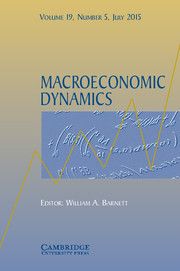
Switching to Good Policy? The Case of Central and Eastern European Inflation Targeters
in: Macroeconomic Dynamics, Nr. 8, 2020
Abstract
The paper analyzes how actual monetary policy changed following the official adoption of inflation targeting in the Czech Republic, Hungary, and Poland and how it affected the volatilities of important macroeconomic variables in the years thereafter. To disentangle the effects of the policy shift from exogenous changes in the volatilities of these variables, a Markov-switching dynamic stochastic general equilibrium model is estimated that allows for regime switches in the policy parameters and the volatilities of shocks hitting the economies. Whereas estimation results reveal periods of high and low volatility for all three economies, the presence of different policy regimes is supported by the underlying data for the Czech Republic and Poland, only. In both economies, monetary policy switched from weak and unsystematic to strong and systematic responses to inflation dynamics. Simulation results suggest that the policy shifts of both central banks successfully reduced inflation volatility in the following years. The observed reduction in output volatility, on the other hand, is attributed more to a reduction in the size of external shocks.

The Effects of Fiscal Policy in an Estimated DSGE Model – The Case of the German Stimulus Packages During the Great Recession
in: Macroeconomic Dynamics, Nr. 6, 2020
Abstract
In this paper, we analyze the effects of the stimulus packages adopted by the German government during the Great Recession. We employ a standard medium-scale dynamic stochastic general equilibrium (DSGE) model extended by non-optimizing households and a detailed fiscal sector. In particular, the dynamics of spending and revenue variables are modeled as feedback rules with respect to the cyclical components of output, hours worked and private investment. Based on the estimated rules, fiscal shocks are identified. According to the results, fiscal policy, in particular public consumption, investment, and transfers prevented a sharper and prolonged decline of German output at the beginning of the Great Recession, suggesting a timely response of fiscal policy. The overall effects, however, are small when compared to other domestic and international shocks that contributed to the economic downturn. Our overall findings are not sensitive to considering fiscal foresight.
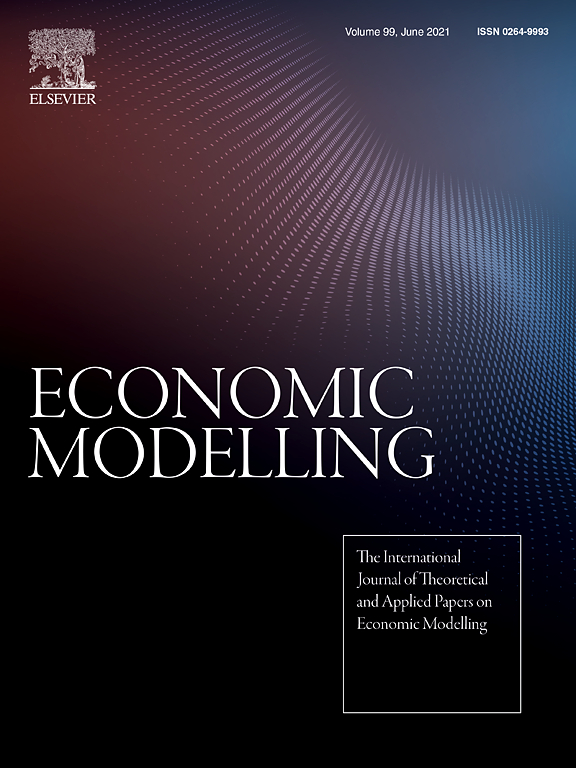
Employment Effects of Introducing a Minimum Wage: The Case of Germany
in: Economic Modelling, July 2020
Abstract
Income inequality has been a major concern of economic policy makers for several years. Can minimum wages help to mitigate inequality? In 2015, the German government introduced a nationwide statutory minimum wage to reduce income inequality by improving the labour income of low-wage employees. However, the employment effects of wage increases depend on time and region specific conditions and, hence, they cannot be known in advance. Because negative employment effects may offset the income gains for low-wage employees, it is important to evaluate minimum-wage policies empirically. We estimate the employment effects of the German minimum-wage introduction using panel regressions on the state-industry-level. We find a robust negative effect of the minimum wage on marginal and a robust positive effect on regular employment. In terms of the number of jobs, our results imply a negative overall effect. Hence, low-wage employees who are still employed are better off at the expense of those who have lost their jobs due to the minimum wage.
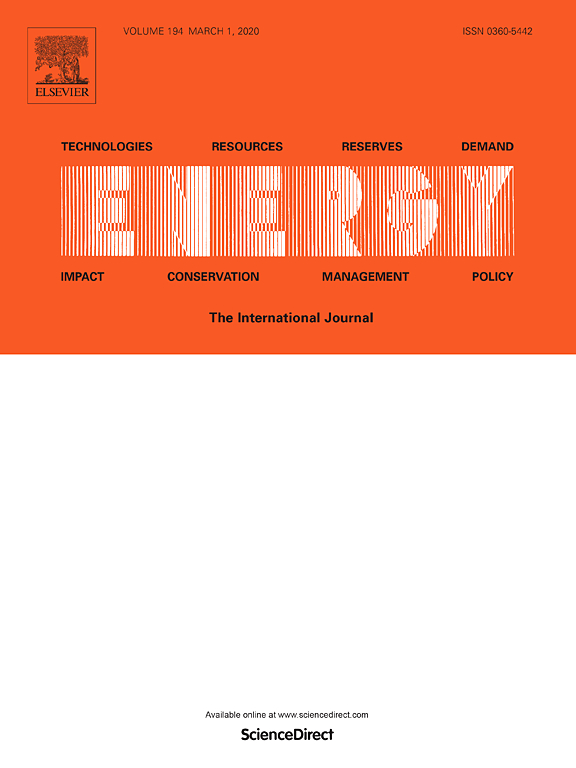
Coal Phase-out in Germany – Implications and Policies for Affected Regions
in: Energy, April 2020
Abstract
The present study examines the consequences of the planned coal phase-out in Germany according to various phase-out pathways that differ in the ordering of power plant closures. Soft-linking an energy system model with an input-output model and a regional macroeconomic model simulates the socio-economic effects of the phase-out in the lignite regions, as well as in the rest of Germany. The combination of two economic models offers the advantage of considering the phase-out from different perspectives and thus assessing the robustness of the results. The model results show that the lignite coal regions will exhibit losses in output, income and population, but a faster phase-out would lead to a quicker recovery. Migration to other areas in Germany and demographic changes will partially compensate for increasing unemployment, but support from federal policy is also necessary to support structural change in these regions.
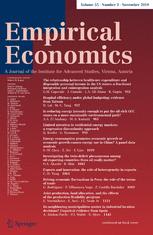
Nowcasting East German GDP Growth: a MIDAS Approach
in: Empirical Economics, Nr. 1, 2020
Abstract
Economic forecasts are an important element of rational economic policy both on the federal and on the local or regional level. Solid budgetary plans for government expenditures and revenues rely on efficient macroeconomic projections. However, official data on quarterly regional GDP in Germany are not available, and hence, regional GDP forecasts do not play an important role in public budget planning. We provide a new quarterly time series for East German GDP and develop a forecasting approach for East German GDP that takes data availability in real time and regional economic indicators into account. Overall, we find that mixed-data sampling model forecasts for East German GDP in combination with model averaging outperform regional forecast models that only rely on aggregate national information.
Arbeitspapiere
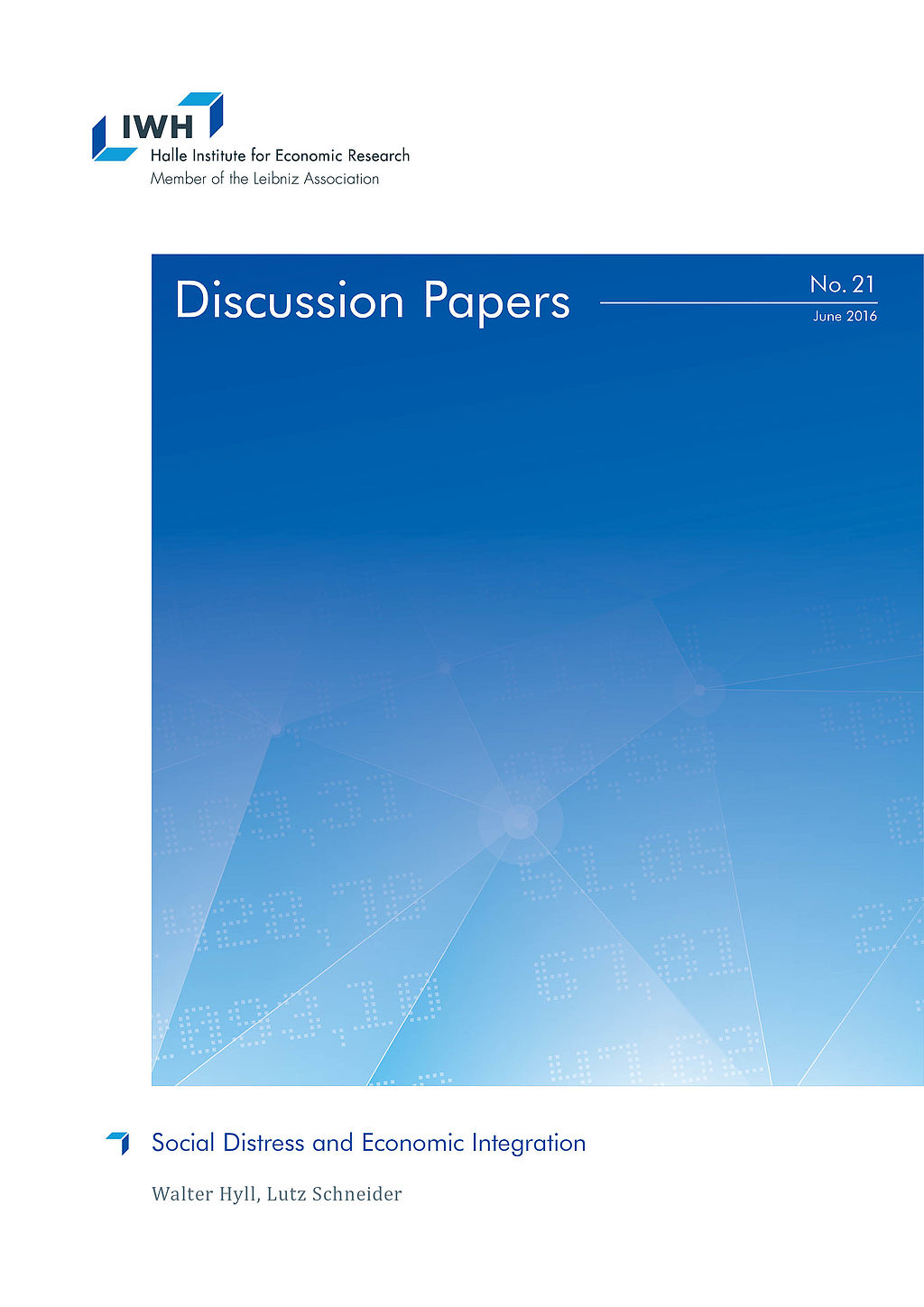
Outperforming IMF Forecasts by the Use of Leading Indicators
in: IWH Discussion Papers, Nr. 4, 2014
Abstract
This study analyzes the performance of the IMF World Economic Outlook forecasts for world output and the aggregates of both the advanced economies and the emerging and developing economies. With a focus on the forecast for the current and the next year, we examine whether IMF forecasts can be improved by using leading indicators with monthly updates. Using a real-time dataset for GDP and for the indicators we find that some simple single-indicator forecasts on the basis of data that are available at higher frequency can significantly outperform the IMF forecasts if the publication of the Outlook is only a few months old.

A Federal Long-run Projection Model for Germany
in: IWH Discussion Papers, Nr. 11, 2012
Abstract
Many economic decisions implicitly or explicitly rely on a projection of the medium- or long-term economic development of a country or region. In this paper, we provide a federal long-run projection model for Germany and the German states. The model fea-tures a top-down approach and, as major contribution, uses error correction models to estimate the regional economic development dependent on the national projection. For the medium- and long-term projection of economic activity, we apply a production function approach. We provide a detailed robustness analysis by systematically varying assumptions of the model. Additionally, we explore the effects of different demographic trends on economic development.

Does Central Bank Staff Beat Private Forecasters?
in: IWH Discussion Papers, Nr. 5, 2012
Abstract
In the tradition of Romer and Romer (2000), this paper compares staff forecasts of the Federal Reserve (Fed) and the European Central Bank (ECB) for inflation and output with corresponding private forecasts. Standard tests show that the Fed and less so the ECB have a considerable information advantage about inflation and output. Using novel tests for conditional predictive ability and forecast stability for the US, we identify the driving forces of the narrowing of the information advantage of Greenbook forecasts coinciding with the Great Moderation.

Is East Germany Catching Up? A Time Series Perspective
in: IWH Discussion Papers, Nr. 14, 2009
Abstract
This paper assesses whether the economy of East Germany is catching up with the West German region in terms of welfare. While the primary measure for convergence and catching up is per capita output, we also look at other macroeconomic indicators such as unemployment rates, wage rates, and production levels in the manufacturingsector. In contrast to existing studies of convergence between regions of reunified Germany, our approach is purely based upon the time series dimension and is thus directly focused on the catching up process in East Germany as a region. Our testing setup includes standard ADF unit root tests as well as unit root tests that endogenously allow for a break in the deterministic component of the process. In our analysis, we find evidence of catching up for East Germany for most of the indicators. However, convergence speed is slow, and thus it can be expected that the catching up process will take further decades until the regional gap is closed.

















